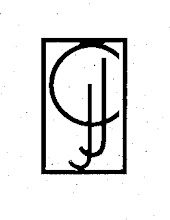 Horses and hormones keep peering at me from my reading. Neil Abramson’s debut novel Unsaid opened with a couple of Premarin foals rescued from slaughter. Random links in blogs have led me to discussions about the safety of hormone replacement therapy, a topic I’m not particularly interested in. But I scanned the comments anyway and was repeatedly disappointed to find that no one ever brings up the HORSES. No one talks about the origins of the “conjugated estrogens” in the drugs they’re taking.
Horses and hormones keep peering at me from my reading. Neil Abramson’s debut novel Unsaid opened with a couple of Premarin foals rescued from slaughter. Random links in blogs have led me to discussions about the safety of hormone replacement therapy, a topic I’m not particularly interested in. But I scanned the comments anyway and was repeatedly disappointed to find that no one ever brings up the HORSES. No one talks about the origins of the “conjugated estrogens” in the drugs they’re taking.So I think it’s time to talk about it on Lull. Again.
No, I won’t go into the gory details of how mares are tortured and then disposed of once they can no longer be pregnant. Nor will I tax you with tales of foals removed from their mothers shortly after birth and killed on the spot or sent to auction as potential meals for cultures abroad. (Note: You won’t find those italicized words used in any documentation from the pharma or agribusiness industries. The mares are merely commodities, cogs, assets until they’re liabilities; the foals are, as the industries like to call them, “byproducts.”) Instead, I’d like to report on a book I just read: poet Jana Harris’s Horses Never Lie About Love.
I recommend Horses Never Lie About Love to…
– Anyone obsessed with horses.

– Anyone about to buy a horse for the first time.
– Anyone thinking about breeding a horse.
There’s a lot to think through before committing to stewardship or sustaining a business and Harris provides a window into the pitfalls of both.
However, I want EVERYONE who is taking, prescribing, or selling any drug that contains hormones from pregnant mares—including Premarin, Prempro, Premphase, Prempak-C, and Aprela (still at the clinical trial stage)—to read this book. I want you to understand what your (likely unintentional) support of this niche of agribusiness and pharma means to the sentient beings exploited in the name of human health.
Horses Never Lie About Love is not an anthropomorphic romp through pastures dotted with mares and foals. It follows the fledgling breeding business of Harris and her husband on The High and Dry Farm and details the numerous challenges and unfortunate realities such an enterprise entails. Harris shares her astute observations about her herd—their idiosyncrasies, their training potential, their communications. She introduces readers to a first-time equine mother who is so enamored of her foal she can’t bear to lose touch with its face long enough for the foal to turn around to nurse; a colt who, desperate for companionship after being ostracized by the herd, befriends a widowed pigeon; a horse who distrusts people if they stand near him, but delights in having them in the saddle on his back; and, of course, the horse’s horse: True Colors—the feral mare who warms to human interaction only when she’s with foal, the mare who proves indispensable to the herd and to Harris (watch the video clip of Harris and True Colors).
Double-click on video for full view.
Harris packages her brief education* about horses and breeding in an engaging memoir. But better than that, she illuminates horses as individuals. This alone makes Horses Never Lie About Love a must-read for anyone connected to the aforementioned drugs. The plight of drug-industry horses is easier to ignore if you also ignore their discrete personalities—if you see them merely as cogs and byproducts. (If you’re new to Lull, make sure you also read “Protect the Sisterhood—No Matter the Species” and visit the links in it.)
Let’s be informed consumers/physicians/salespeople. Once you’ve read about horses thoughtfully cared for as individuals and those enslaved in factories as means to profits, come back to Lull and share your thoughts on the matter. If you know someone who uses, prescribes, or sells Premarin, Prempro, Premphase, Prempak-C, Aprela, or any related drug containing conjugated estrogens, e-mail this post to them. Or give them Horses Never Lie About Love and tell them why you want them to read it. There are plant-based drugs and other alternatives available. Sure, some alternatives require more self-discipline and effort to use, but they won’t hurt any horses. Above all, let’s do no harm…
* This is an informative read but not a how-to. Harris makes mistakes, for which at least one reviewer has taken her to task, forgetting that this is a memoir about events that occurred in a very different era.







